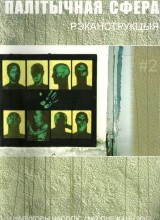
We kindly inform you that, as long as the subject affiliation of our 300.000+ articles is in progress, you might get unsufficient or no results on your third level or second level search. In this case, please broaden your search criteria.


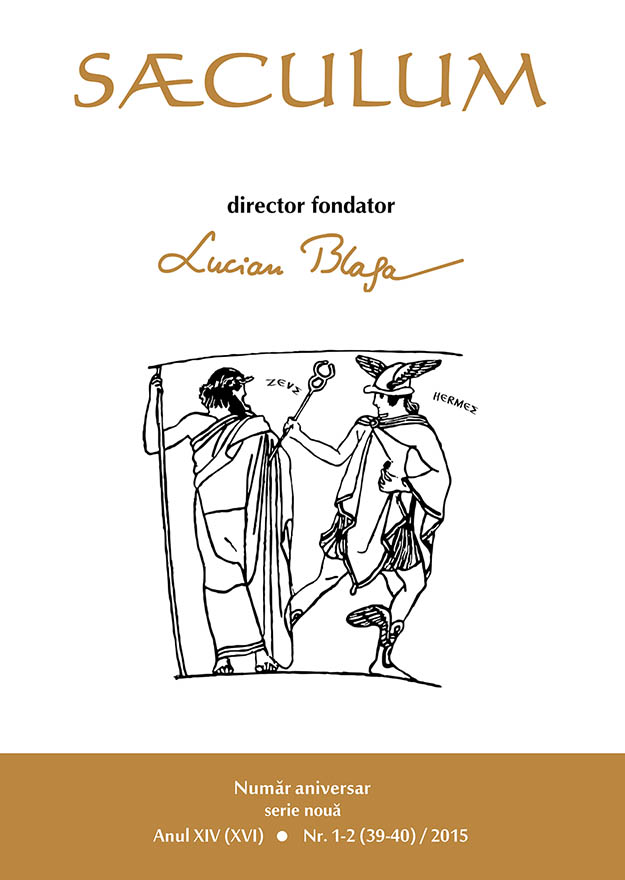
The present study attaches itself to the 3D politics as a way of approaching new ideas and using any support that Godard’s film - Goodbye to Language - may offer, with the avowed intention of reviewing image signifiers which (here) approaches the fact that: the verdict imposed by the political impulse of the image tolerates three dimensions found in representation and representing, mediation and intermediation, geopoetics and geopolitics.
More...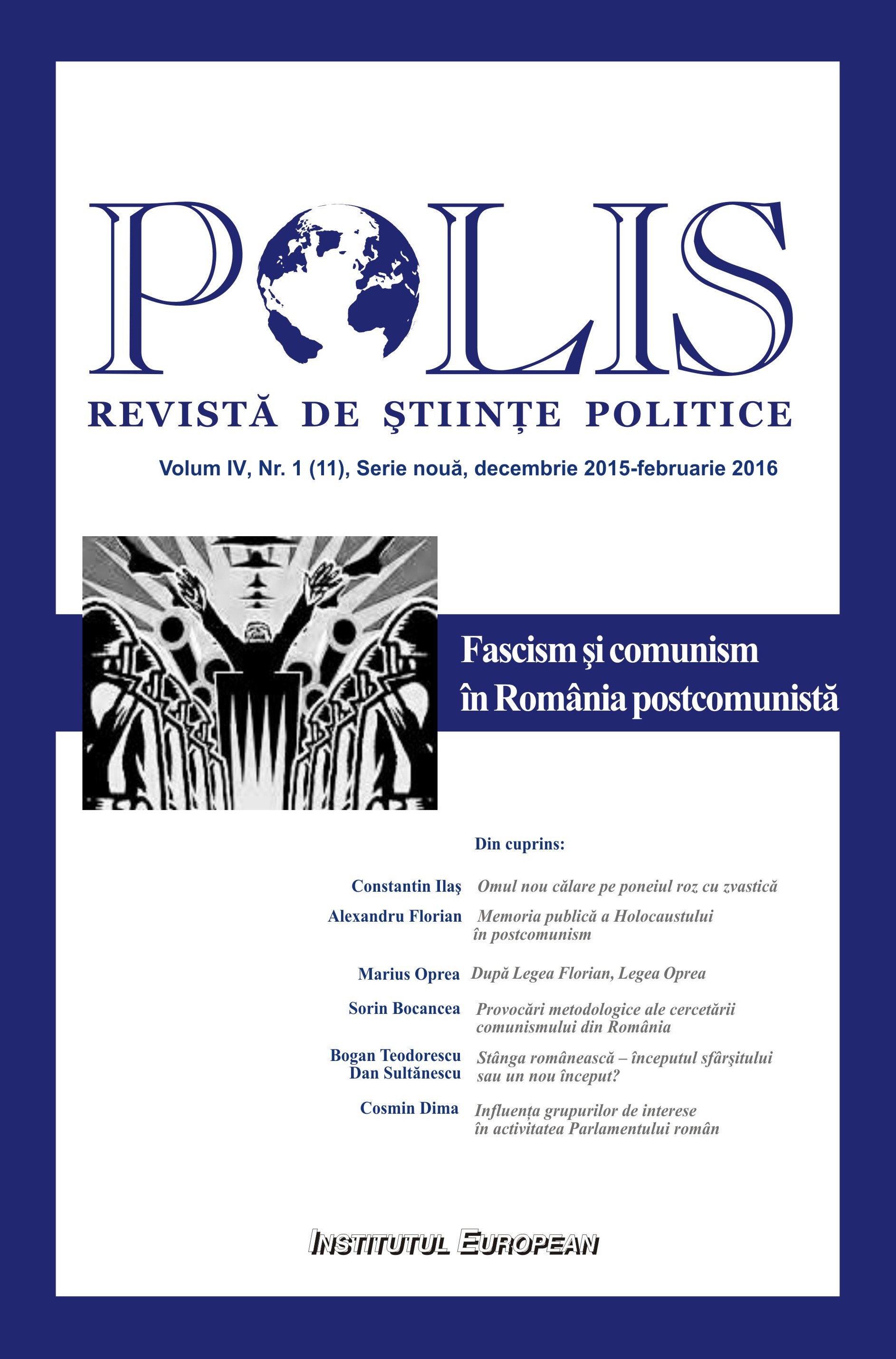
After PSD has lost the presidential elections in 2014, we are in a new context in which we need to discuss the possible decisive erosion of PSD electorate. We will analyze sociological data to see to what extent this possible erosion is based on something real or is just wishful thinking of PSD opponents
More...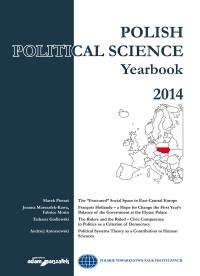
Safety and defence studies have a very short history, as they were created quite recently. Hence the possible assumption that research methods that are used in them are in a sowing stage. In spite of it, there are researchers that decided to undertake a variety of explorative challenges and they try to use different research method, very often choosing them in reference to investigated reality. Therefore, it can be assumed that the methodology of safety and defence studies has not completely developed (yet). Borrowing methods from different sciences is a very difficult venture which causes situations when research results are false or they do not support any of the stated hypotheses. In the objective article, a review of research methods used for now in safety studies has been made. Of course, it can not be suggested that they are the only and the best ones. Actually, scarcely the quantity of conducted researches and investigated issues can let researchers make an observation which method is a leading one. For now, researchers try to look for accurate solutions for them and the investigated matter at the same time. It is very similar to a promotional work (such as essays, researches). In universities, where degree dissertations and Masters’ theses are being created, different research methods are used to apply to them. It happens quite often that the used methodology derives from pedagogical sciences. Some of the universities use research methods borrowed from political sciences. Another ones use methods that are quite sophisticated and very often draw from a variety of scientific disciplines. To recapitulate, one can hope that it is only the matter of time until together with maturating of the new discipline which is safety and defence studies, some methodological patterns will also be created.
More...
The paper is an analysis of the category of political thought as an element of the research field of political science. The attention focuses on three issues: 1) the concept of political thought and the conceptual network related to it; 2) fundamental sources, methods and techniques adequate to research on political thought; 3) a historiography of political thought and the development of the ways to analyze political ideas. The concept of political thought enjoys a status of an autonomous notion in the language of political science. It is constituted by all kinds of reflection on political reality, irrespective of the degree of their development, internal coherence or systemati-zation as well as of the degree of their theoretical advancement and specification. It origins as a result of political thinking. It cannot be reduced to notions such as ideology, doctrine, conception, programme, ideas, a set of values and political princi-ples or be properly defined by the recurrence to these notions. Neither does it constitute an intermediate link in the categorical chain between ideology and doctrine. Both ideas and programmes, as well as ideologies and doctrines are constitutive elements of poli-tical thought. The present author assumed that political views do not have to relate directly to politics, institutions of power or a political regime as long as they exhibit political features. In the structure of political thought the following strata can be distinguished: ideological, conceptual and pragmatic which are hierarchically interdependent. To develop a political thought is the only way for any political subject to find an answer to many fundamental questions, to define goals which make public activity meaning-ful, to delimit political facts in the reality and to group them into relationships and to distinguish the political subject – in existential terms – from other participants of social life. In the political thought of the XX century one can see the evolution concerning types of ideas dominating the political thought – from the classical political phil-osophy to a reflection related to optimal political decision-making in given circum-stances. The breakthrough occurred around the half of the XX century when political subjects in their idea-making activities ceased to focus exclusively on precise defini-tions of visions of an ideal order based on a single, true and universal principle and engaged themselves in pragmatic controversies concerning the nature of particular solutions and the organization of the process of decision-making, that is concerning political engineering. There follows from the above points that exclusive focusing in research on analyses of political activities and their results without taking into consideration the views of politically oriented communities and decision-making centers representing them, would make it impossible for political science to fulfill its basic functions effectively (from the descriptive to the instrumental one)*. Therefore we attribute such an important role to the proper methodological organization of research on political thought which still suffers from three visible shortcomings affecting the cognitive process in numerous ways: 1. a weakly developed methodological reflection on the notion of political thought and the conceptual network related to it 2. little cognitive interest in the sources, methods and techniques proper to re-search on political thought 3. lacking scientific investigations in the historiography of political thought and the development of ways to analyze political ideas.
More...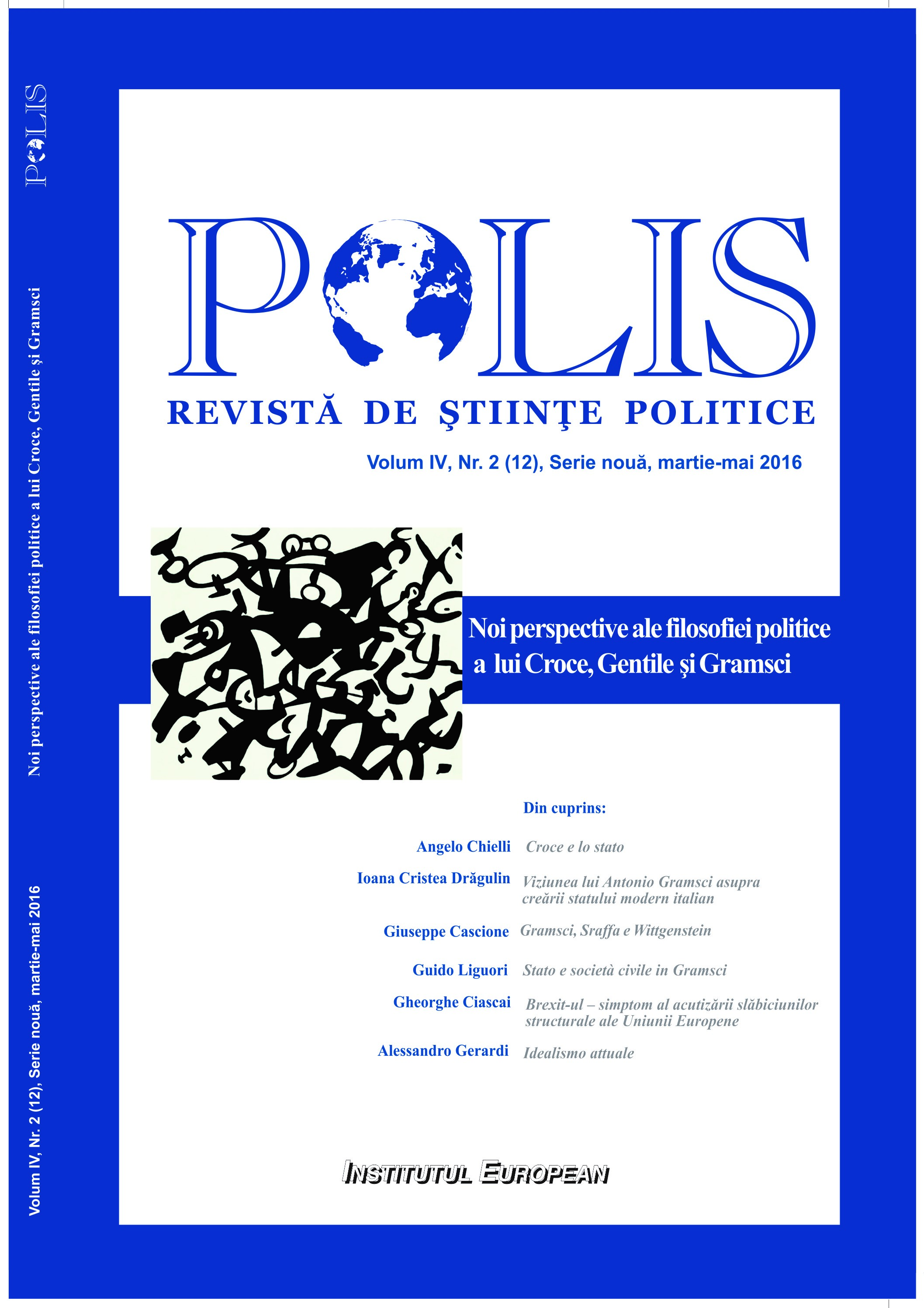
The „Doparie” is a proposal, a method indeed, for participatory democracy in a context of a representative democracy. The awareness, that the policy, which has long been considered unreliable by the civil society, has been the assumption for a search of an organic participation. This has been developed through a scientific survey conducted by the National Research Council that examines the relationship between „emotion and participation”, using also the studies of prof. B. Frey on „Economics and Happiness”. The goal is to create a public opinion structured within the parties that may have an influence, through a deliberative debate on the partisan choices.
More...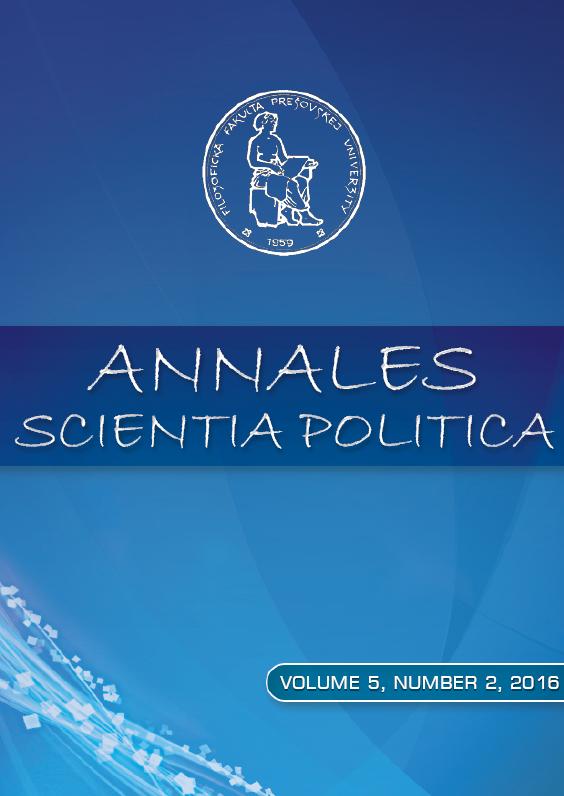
In recent years, political science as a discipline was described very negatively in the views of political elites, media and society. Despite the fact that the their position in modern democratic societies went hand in hand with the word trends of political sciences in common, we are able to observed differences within the interpretation, the methodology, or in the context of scientific papers and publications. The main aim of the article is to analyse selected political journals in Slovakia in the context of their establishment in the international databases, in context of their thematic target and in the diversity in relation to the expertise of authors.
More...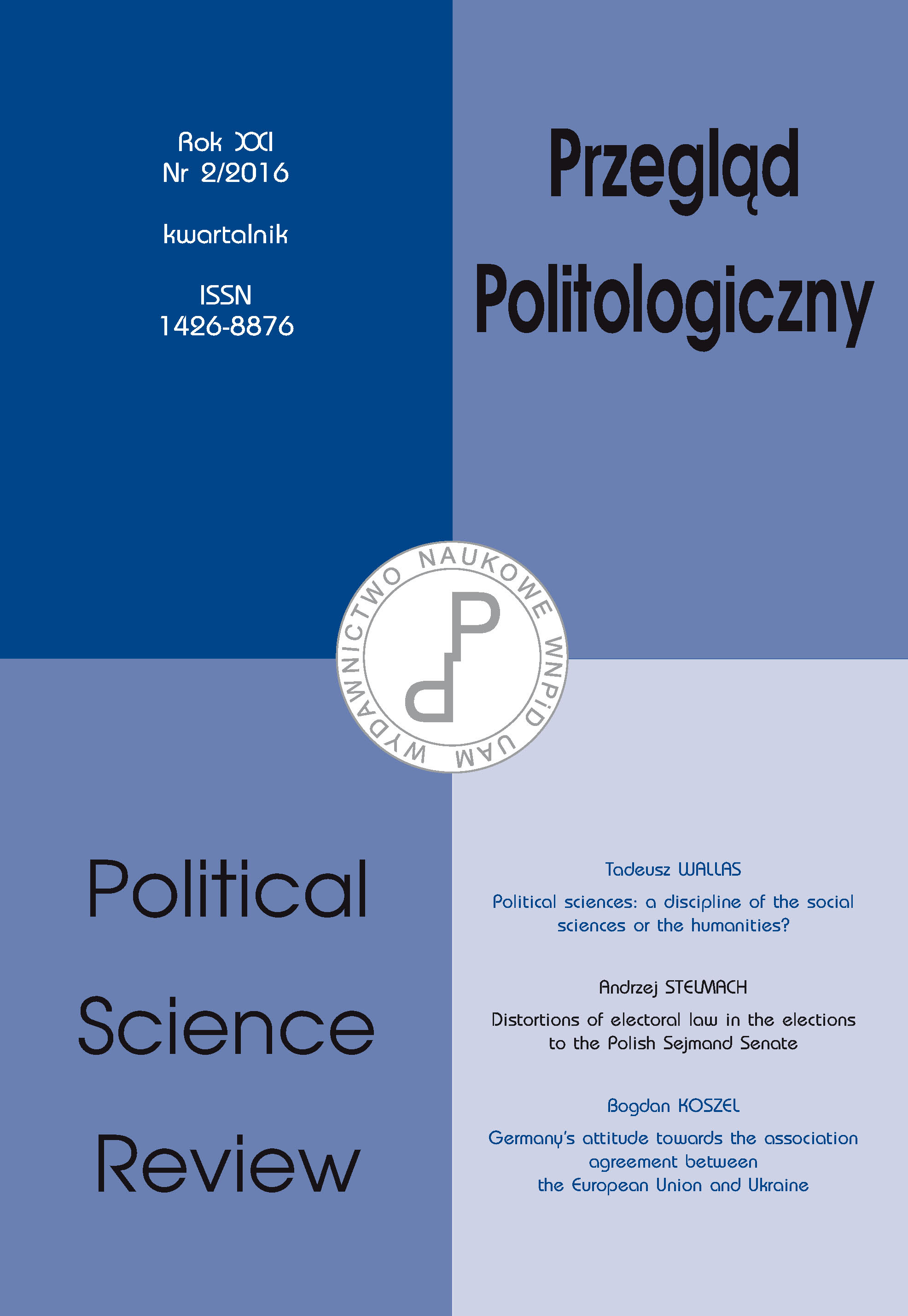
By virtue of an administrative decision, the division of Polish academia into fields and disciplines was verified in 2011. It is owing to this process that political science, among others, was reassigned in Poland. Before September 30, 2011, political science was classified as one of the humanities, but later on it was included in the new field of the social sciences, created as a result of the division of the humanities. This decision started an ongoing discussion, also in the circles of political scientists, on the issue of how advisable this change is, and it has become an important task to confirm the thesis that this decision was substantially justified. It is assumed that political science as a discipline has more in common with other disciplines assigned to the social sciences than the humanities. Additionally, by way of developing a new register of academic fields and disciplines, the administrative divisions in Polish academia were to a large extent aligned with the classification of fields and disciplines adopted by the OECD, UNESCO and EUROSTAT, which will facilitate the internationalization of academic collaboration. The above organizations and institutions, and – consequently – some of their member states, have already divided the humanities, which used to be alternatively named social sciences, into two separate fields: the social sciences and the humanities. In order to justify the above-mentioned thesis, it was necessary to determine how academic specialization, discipline and field of science are perceived today; to indicate the essential divisions in academia; to attempt to de ne the specific nature of the humanities versus social sciences; and to present the relations of political science to the latter category. The assessment of how intensive these relations are, made it possible to confirm that the above-mentioned thesis is justified.
More...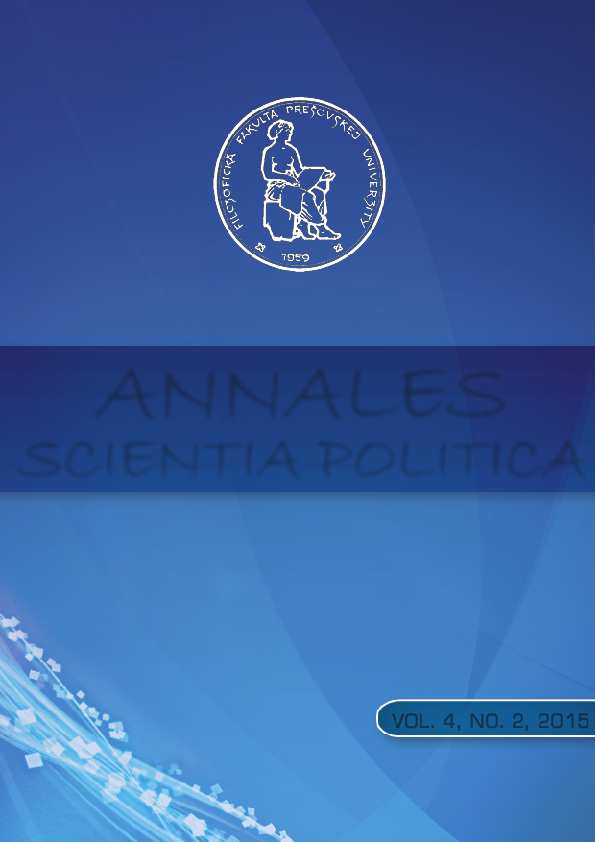
The paper is devoted to the problem of influence of university ranking of contemporaryacademic policy. The author argues that due to specific indicators, which are used in the maininternational university rankings, we would observe the temporal and spatial asymmetry ofunderstanding of university mission, especially in elite segment of higher education: the shiftto research activities in temporal context and the shift to internationalization in the spatial one. So, the overcoming of these asymmetries is an important task for contemporary ranking theory and methodology.
More...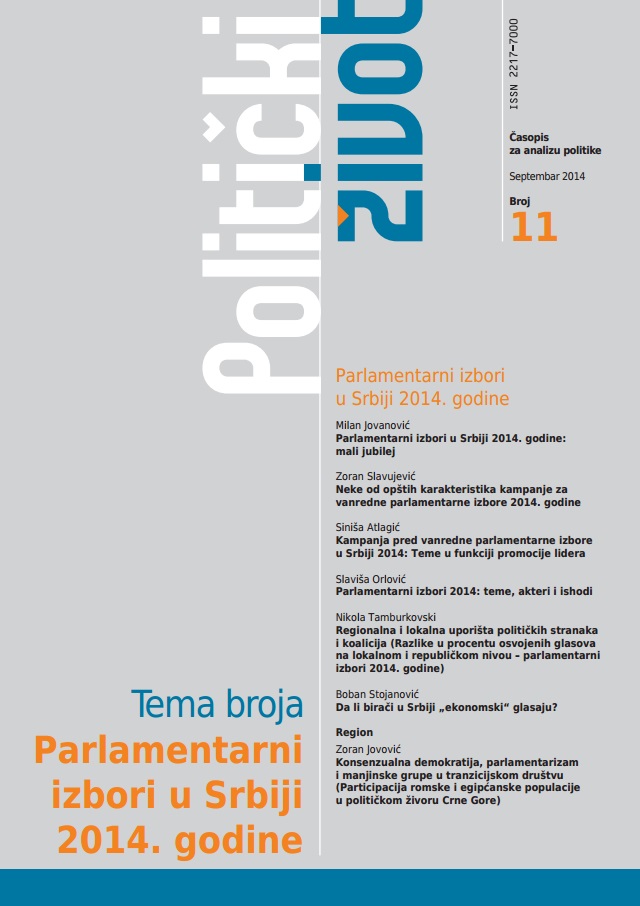
Serbian political and party stage has been basically changed after the 2014 early elections. That is why the author points out to some of the main features of the election campaign we coud take into consideration in an attempt to explain election results: rather short election campaign was the result of numerous campaigns led during the pre-election period; though all the participants argued they were leading positive campaigns, the campaign overall was negative with numerous elements of a „dirty“ campaign; election promises made in a general manner, negative as well as „dirty“ elements brought about the deficit of rational discus sion and made „logic of the heart“ to be prevailing in the campaign and it took the charac teristics of an irrational one; economic and social topics were predominant but once again the campaign cannot be identified as an issue campaign but as a leadership one;leadership campaign unveiled a deep crisis of managing potentials, especially crisis of leadershipand while voters were left to choose among immature and „used“ leaders.
More...
The aim of this paper is to analyze the phenomenon of regional and local strongholds of different parties, i.e. their strongholds in towns and municipalities in Serbia, where some electoral lists for the parliamentary and local elections win a far greater percentage of votes compared to their overall support throughout the country. In the first place, we are offeringseveral answers to the question of what might be called the stronghold of a list. Then we analyze the trend of increase of the number of these local communities in the last few election cycles. Afterwards, we present a number of different tactics used by parties to form a stronghold – empirical examples are given on the basis of the 2014 parliamentary elections and the campaign that preceded them. The final part of the paper tries to answer the question of whether an increase or decrease in support for certain parties in certain strategically important parts of the country in recent years could have a significant impact on their overall electoral success.
More...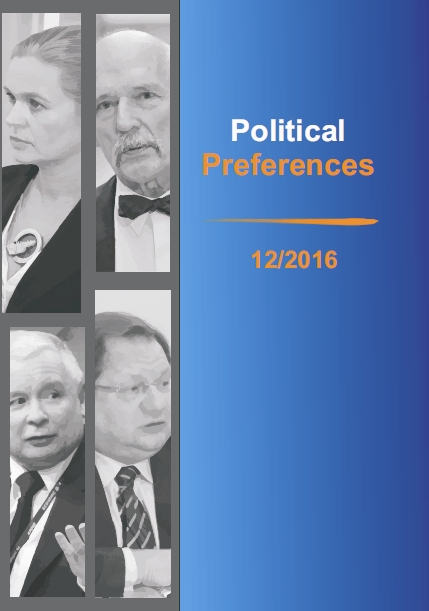
The article contents some results of research on political preferences of candidates for City Council in Szczecin. The survey was done just before the 2014 local elections. In the survey’s results published in this paper, the main object was to determine the relation of candidates for councilors to competition for the mayor of Szczecin. The analysis is focused on the issues of mayor’s potential attributes such as: previous achievements, personal competence, image, party affiliation and program for action in future. Moreover the concentration was also done on preferences of mayor’s candidates: it was very interesting to compare answers on the question who would be better mayor of Szczecin. In the research the modified Analytic Hierarchy Process methods was used. Firstly, the modification, called the method of weighting the selection preferences, showed Piotr Krzystek (mayor of Szczecin since 2006) as a most preferred pretender in 2014 - the majority of party electoral committees recognized him as a second choice candidate. Secondary, each electoral committee had disloyal followers.
More...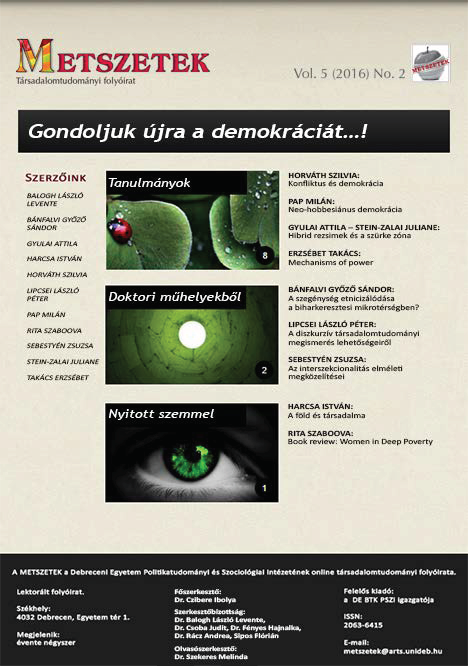
In political theory, the criticism of Rawlsian constructivist liberalism has been articulated in theories of political realism. John Gray, one of the promoters of realist liberalism, recommends a neo-Hobbesian way of social coexistence which is based on the conflictual and antagonistic idea of political life. It takes social values and forms of life as incommensurable in modern multicultural societies. Taking value-pluralism and its conflicts seriously, a theory of modus vivendi has been articulated among realist political thinkers. Being a post-liberal (or post-Enlightenment) theory, modus vivendi is more a practice oriented and open-ended theory than philosophical constructions based on high morality. Modus vivendi theorists make an emphasis on the peaceful co-existence of social groups and a moral minimum of the political society. One of the deficiency of the theory is that it says not much about democracy, though it would be highly useful according to two contextual considerations.On the one hand, a modern political system would be impossible or outrageous without any form of democratic legitimacy. On the other hand, there is an exhaustion of the liberal project(s) and the societies featured by multicultural prosperity. Besides constitutional protection, defending democracy in this new context means balancing between cultural and other value-oriented groups in modern societies. In my paper, I make an attempt to examine the concept of democracy in the light of modus vivendi theory.
More...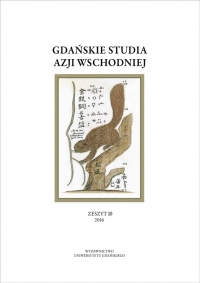
The article aims to describe the political career of one of the most promising members of the so-called sixth generation of Chinese leaders, Hu Chunhua. Hu, a protégé of the former Secretary Hu Jintao, is currently a strong candidate for a place in the Standing Committee of the CPC’s Politburo, whose members will be officially appointed next year. However, there are several indications that Hu’s political future may not look as bright as in 2012, at the beginning of Xi Jinping’s first term of office. The conclusion of the paper therefore aims to critically assess Hu Chunhua’s chances of future promotion in the context of the changing political status quo.
More...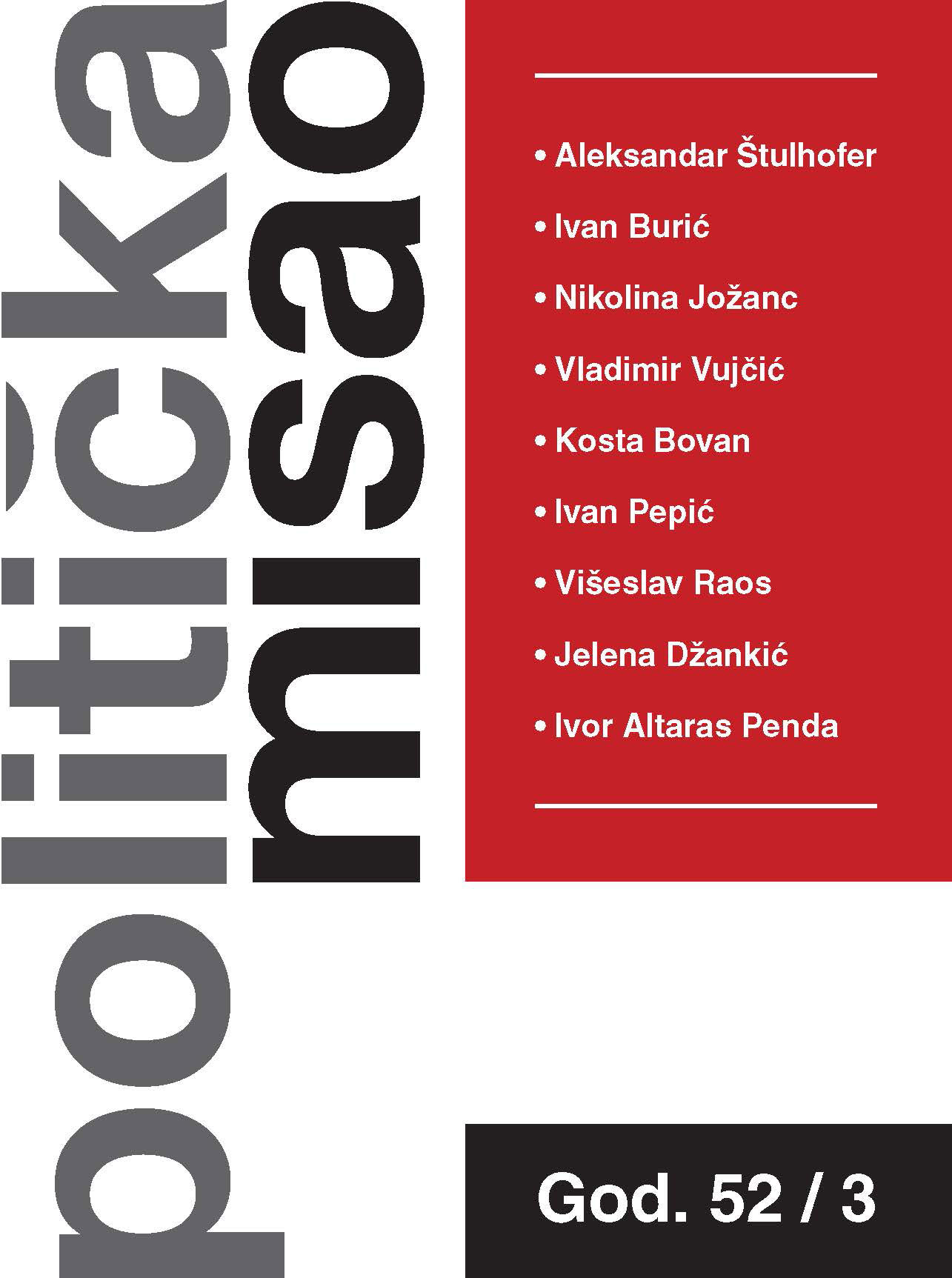
The egalitarian syndrome theory (EST), proposed in 1970 by Croatian political scientist and sociologist Josip Županov (1923-2004), is likely the most important theoretical contribution to the Croatian social sciences. Due to the fact that EST has never been operationalized and systematically verified, its influence has been steadily diminishing – particularly among mainstream researchers. The aim of this study is to operationalize EST and, using confirmatory factor analytic approach, to construct and validate a multi-faceted measure of the egalitarian syndrome. Based on two models characterized by acceptable fit to data, the authors propose a longer version (27-item long) and a shorter version (15-item long) of the Egalitarian Syndrome Scale. The initial validation of the scale suggests that the composite measure can be useful in a wide range of social science studies. For the first time, Županov’s claim that egalitarianism remains a persisting obstacle to the country’s socioeconomic development can be rigorously tested.
More...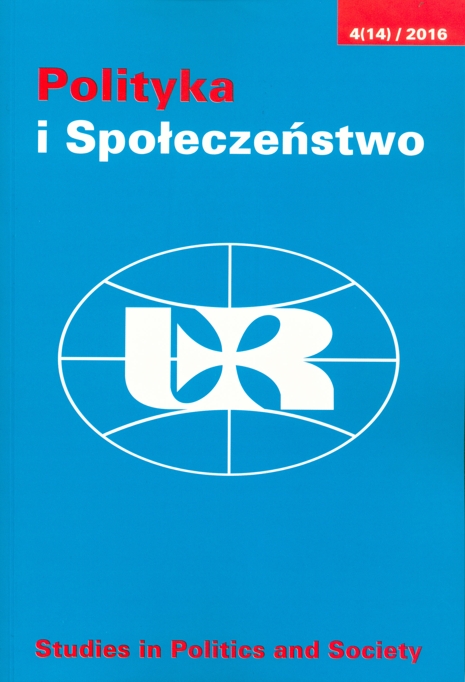
The article is a form of reflection upon the research subject, the research methods and the aim of research on social movements and political thought. The author of the article suggests that in the research being carried out one should use methods characteristic of other scientific disciplines and the terms used in other sciences, for example in medicine, cognitive science or sociology. Replying to the question of the aim of research, the author explains that science is to serve the cognition and understanding of the world. Science is not supposed to be an art cultivated by a small circle of scholars in order not to contribute to the degeneration of the social system.
More...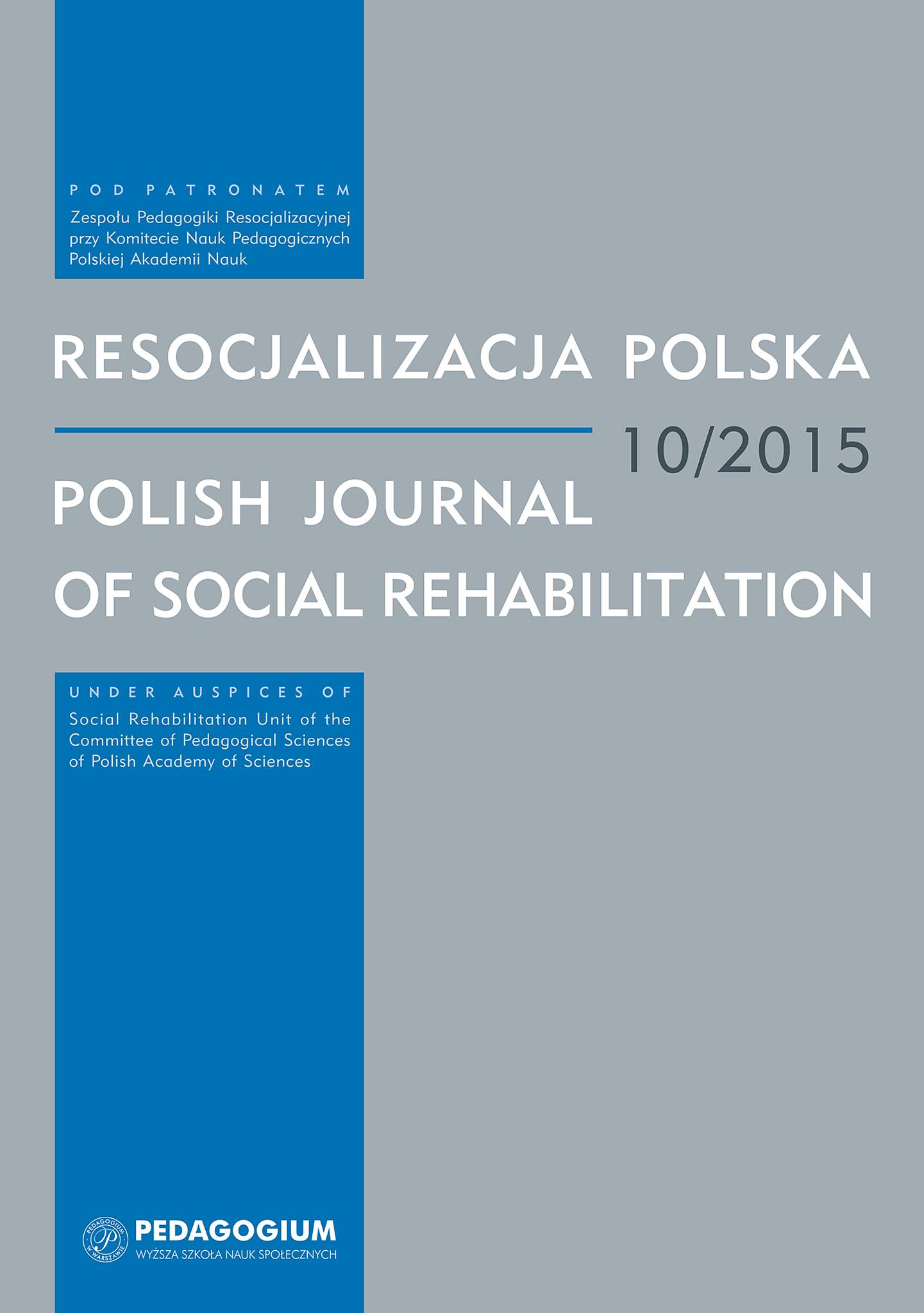
Celem artykułu jest ukazanie pewnych trudności, problemów natury etycznej i dylematów moralnych jakie napotyka badacz jakościowy w terenie. Poruszane zagadnienia są własnymi refleksjami autorki po przeprowadzonych badaniach terenowych w przestrzeni miasta z perspektywy pedagogiki resocjalizacyjnej.
More...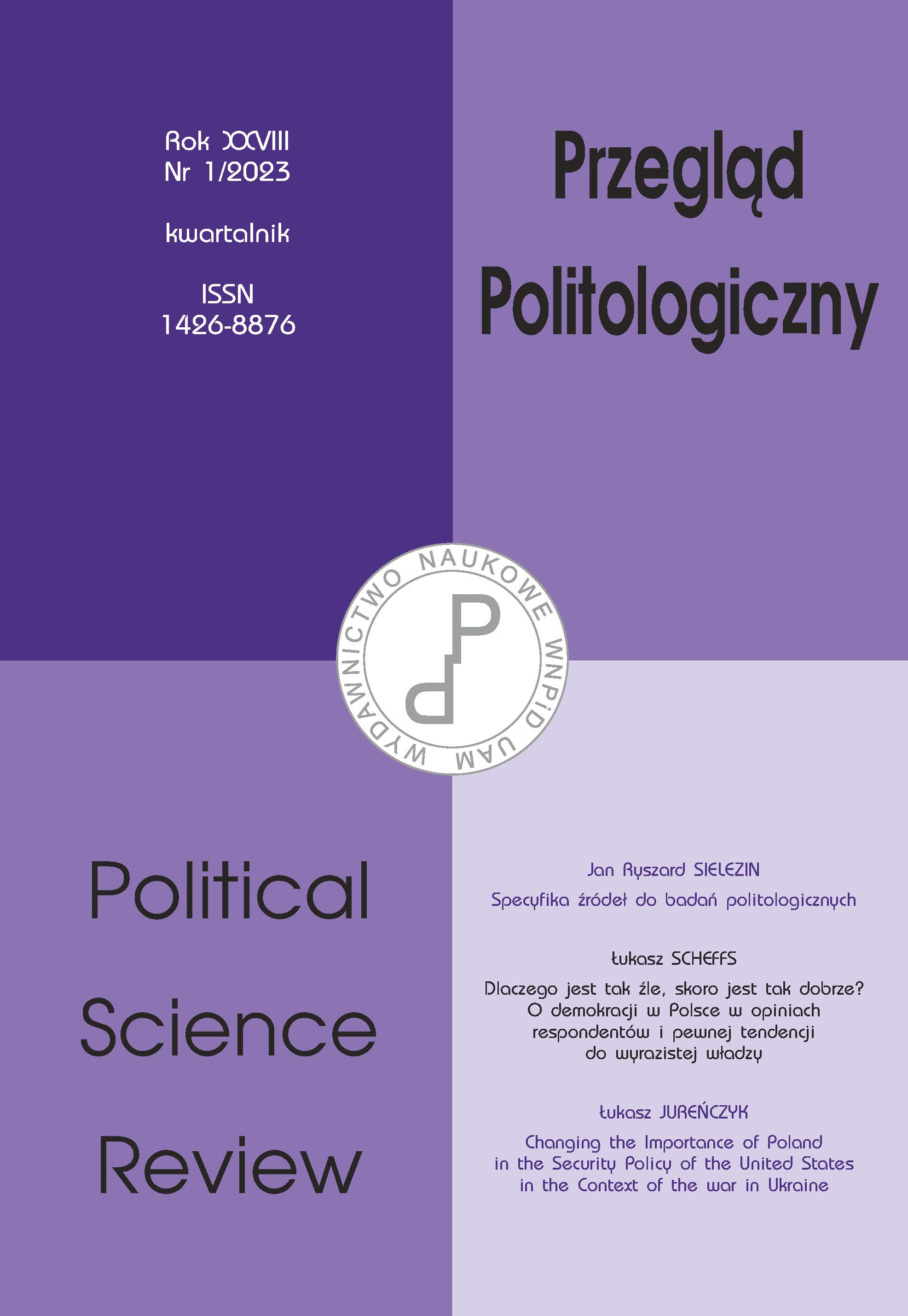
The article concerns using sources in political science research, assessment of their usefulness and inter alia interpretation in the aspect of internal and external critique. Apart from classic sources: documents, Parliament, court, administrative and military records as well as political parties and social movements, there are other sources that are used. For instance, narrative sources, diaries, journals, memoirs, memories, autobiographies and epistolary sources. These documents complement one another and are supposed to be researched as far as their origin, authenticity and credibility are concerned. Critique of sources aims at, among others, elimination of useless documents or those of questionable value. In the 21st century crucial role play online sources: blogs, vlogs, Twitter or Facebook entries, audiovisual documents of different level of generality or detailing. Their credibility and usefulness depend on critical activities and identifying their helpfulness in the research.
More...
Power is a scientific category that reflects the essential and regular connections and relationships between people. In political philosophy, the problem of man and the problem of power cannot be interpreted independently of each other, because they concentrate in themselves the truth about the subject, the truth about the other and the truth about their coexistence. Placing the problem of the connection between the social and psychological aspects of the power is subordinated to the need to expand the problem area of political and philosophical study of power relations. Special attention is paid to the changes in the orientation of political research not only to the relatively static political and social institutions, but also to the dynamics of the political process, to the human aspects of the complex dialectic of needs, actions, interests, wills, emotions, general idea of political reality, political and moral principles.
More...